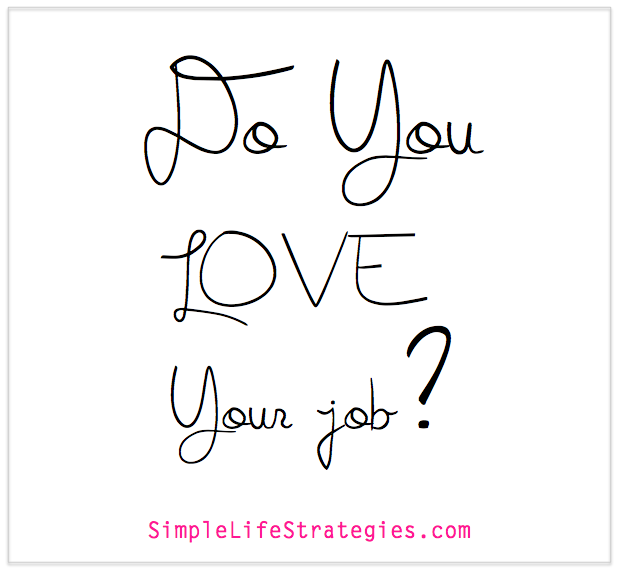Have you ever wondered if you picked the right career? Is your job right for you? Does it make you happy? Is it what you were put on the planet to do?
If you have (like most people), you may have found yourself evaluating the pros and cons of what you do for work. While this is a useful process, it can be easy to get it wrong. Today I’m going to share with you the exact process I use to coach clients to identify if they are in the right job or not. You see, our brains have a tendency to do one of three things:
- Distort
- Delete
- Generalise
What does this mean?
Well, often when we look at a situation such as our job, we might distort the way that we look at it. For example:
Jenny is a Lawyer. She tells me that she lives in fear of being fired because she’s no good at her job. I ask her if she has ever received feedback from her boss that she is under-performing and she replies no. In-fact she tells me how she recently just got promoted.
So what’s happening here? Jenny is distorting her view of her job. She has an unfounded fear that she is no good at it, yet all of the evidence is saying otherwise.
Here’s another example:
David is an IT Professional. He tells me that he absolutely loathes his job. He just can’t stand it, hates every second of it. I then ask him to break down exactly what he does each day and to describe how he feels about each task. As we talk, it becomes clear that David actually enjoys quite a few of the tasks in his job – he just doesn’t like the ‘idea’ of his job.
So, in this instance, David has generalised his situation. By saying that he ‘hates’ his job – he’s not being 100% accurate, because the reality is that he actually enjoys aspects of his work. What’s happened here is that David has drawn a global conclusion about his job.
And one final example:
Donna is a Project Manager. She tells me that her job is really boring. She just can’t stand having to organize so many tiny details. When I drill down into the nitty gritty of her job, it becomes clear that Donna really enjoys the relationship-building aspect of her job, she just isn’t as keen on the organizational part. She loves to deal with other people and is really good at creating long lasting relationships.
What’s happened here is that Donna has deleted some of this story. She has only mentioned the boring parts of her job and failed to mention the parts that she does enjoy. So again, she’s not looking at her job in an objective manner.
What do all of these scenarios have in common?
That’s right – each of these people are only focusing on the negative parts of their jobs. So, essentially, this is negative thinking in action! I see this a lot when I’m coaching people about a career change. Often people will come to me with a view that they hate their job, but when I dig a little deeper there are almost always aspects that they do actually enjoy.
The danger here is that your thinking gets skewed and you get sucked into only thinking about what you don’t like about your job! This can be a slippery slope to what I call job depression. When we have job depression we wake up each morning dreading the day ahead of us. We spend all day ‘hating’ parts of our job and we completely forget to savour the parts that we do enjoy. When we talk to anyone about our job we moan and whinge about how bad it is. We basically turn our job into our enemy purely with our thinking!
This is a very dangerous game to play because we’re ultimately creating our own unhappiness! Plus, at the end of the day we do need to be realistic and know that it’s highly unlikely that any one job will tick every single box! All jobs come with some tasks that are not enjoyable – even our dream jobs!
So what can we do to take a realistic view of our work?
One of the best things we can do is to spend 2 weeks creating a work diary. In this diary you need to list each task that you do down one side and then you need to go through and rate how much you enjoy or dislike each task out of 10. You can also add a few comments next to each task to become aware of why you liked or disliked each part.
What this exercise does is give you an accurate reflection of how much of your job is really that bad and how much of it you actually enjoy. At the end of the two weeks it’s really interesting to go through and note what percentage of your work you really don’t like and what percentage you enjoy. I bet you’ll be surprised!
Check out the Simple Life Strategy below for 5 more simple steps to identify if you really do hate your job or if actually it’s not that bad!
Simple Life Strategy: How to Know if You’re in the Wrong Job
1. Take stock of how you think about your job. If someone was to ask you “Do you like your job?” think about how you would answer?
2. Become aware. Do you generally moan to friends and family about all of the things you hate about your job?
3. Make a list of all the things you like about your job. Take your time and really think about what tasks you like doing.
4. Make peace with the fact that no one job will be perfect! Accept that there may be tasks that you don’t love that come with the territory.
5. Create your own work diary. Make a list of each task you do every day for two weeks and rate every task out of 10. At the end of the 2 weeks you should have an accurate representation of your job
6. Consider what your unique skills are. Does your job allow you to use these skills?
7. By the end of this process you should be able to identify one of three things: 1) you actually quite like a lot of your job, it’s just that you were focusing on all the bad bits 2) there are some aspects of your job that suit you but there are more negatives than positives 3) you really are in the wrong job because you dislike more than 70%of the tasks you do
If you find yourself with options 2 or 3 then it’s time to start looking at a new career path. If however, you find yourself aligning more with option 1, then you may be able to make your job work for you by focusing on the tasks you really enjoy and looking at ways to increase these aspects and decrease the parts you don’t enjoy!
If you would like to take the next step and work out a new career, I would be honored to help you to identify what your skills are and which industry or area of employment might be right for you. If this sounds like you, send me an email and we can have a chat.
Here’s to happy jobs and happy lives!
Know someone who hates their job (or thinks they do?) Share this article with them!
More Simple Life Strategies:
- 10 Steps to Get Exactly What You Want
- How to Stop Trying to Control Everything
- How to Be Successful and Happy
PS ~ Sick of working just to pay the bills? Get my most popular, FREE online training here: My 3 Step process To Find A More Meaningful Career.
Join 108,000 beautiful souls on the Simple Life Strategies Facebook page to get access to articles before anyone else!



Great article unfortunately I’m definitely a 3. I’m a forty plus year old in a entry level job ready for a career change. I would like some advice on what path to take.
thank you
Hi Demetrius,
That’s great that you know it’s time for a change 🙂 My advice is – don’t leave it too late. Explore other options and take as much action as you can.
This article may help: https://simplelifestrategies.com/uninspired-job/
Happy New Year!
Zoe B x
Its a nice article. I am 20 years old, fresh graduate. I really want in marketing /sales field but some of my friends telling me Im not that good on that field. But my mind says to pursue that because that’s my dream.
I am now currently employed. Doing computer works but not talking directly to clients. What would be the best thing for me to do to pursue my dream?